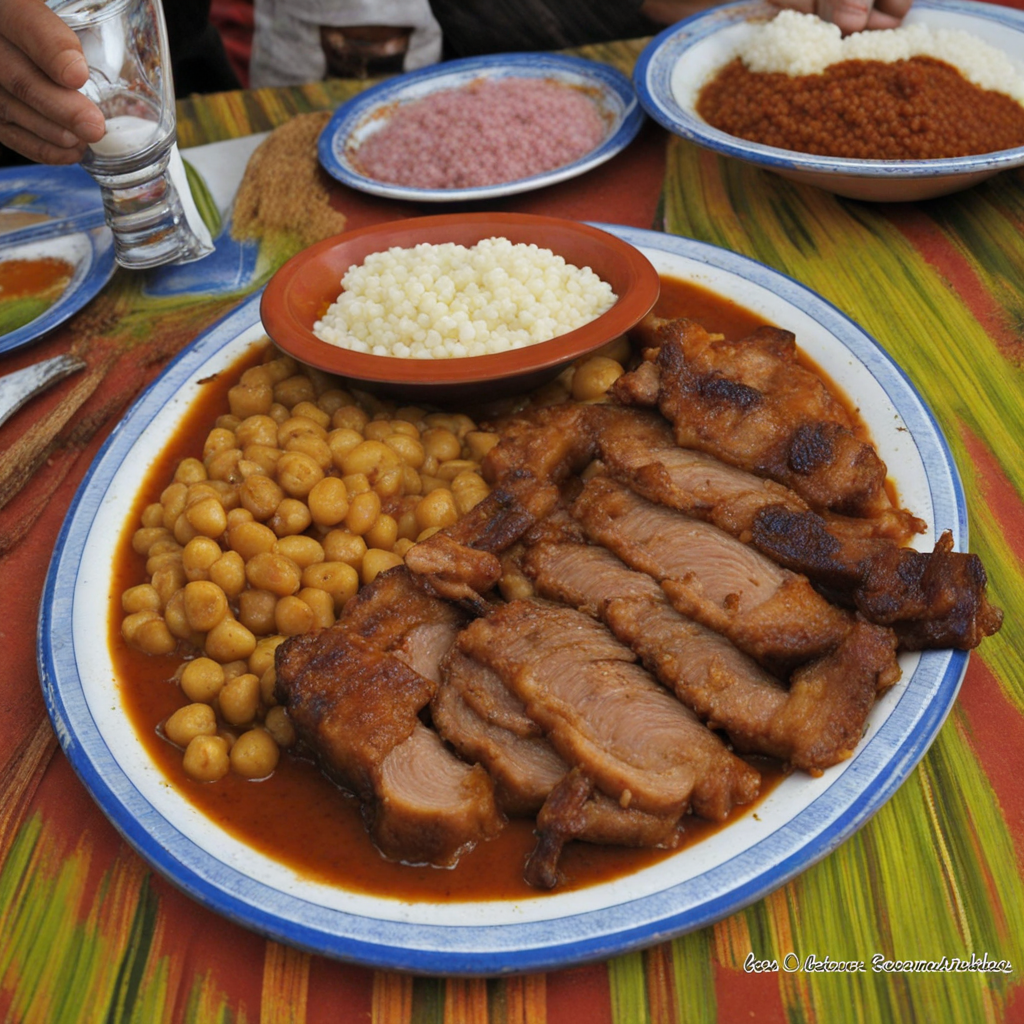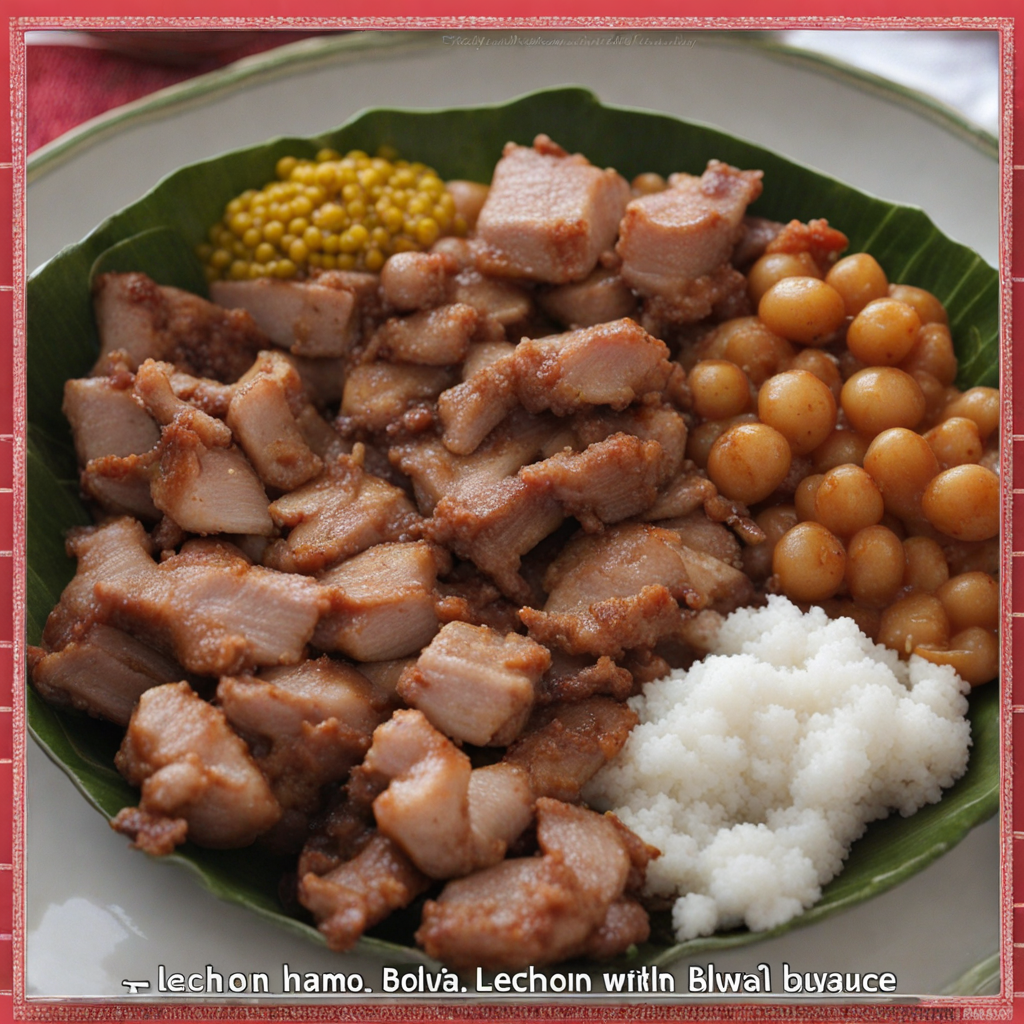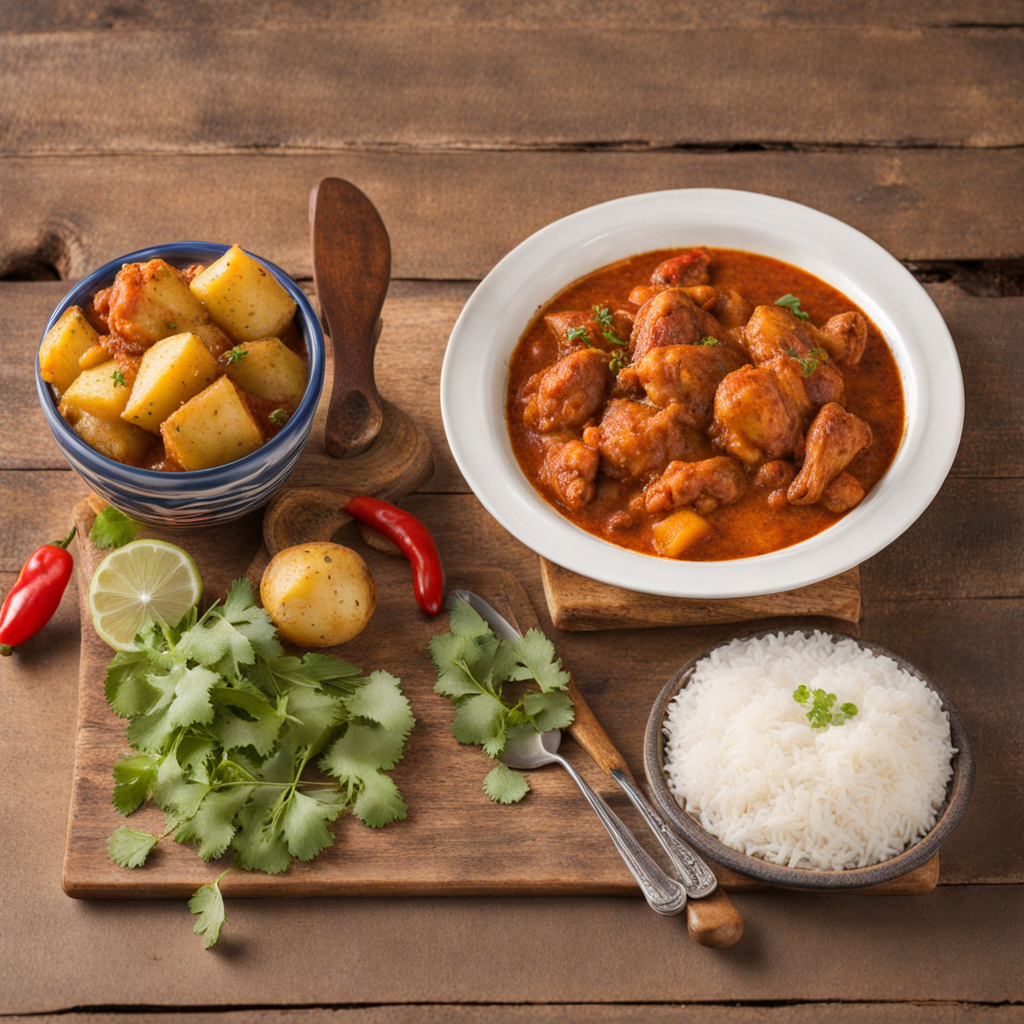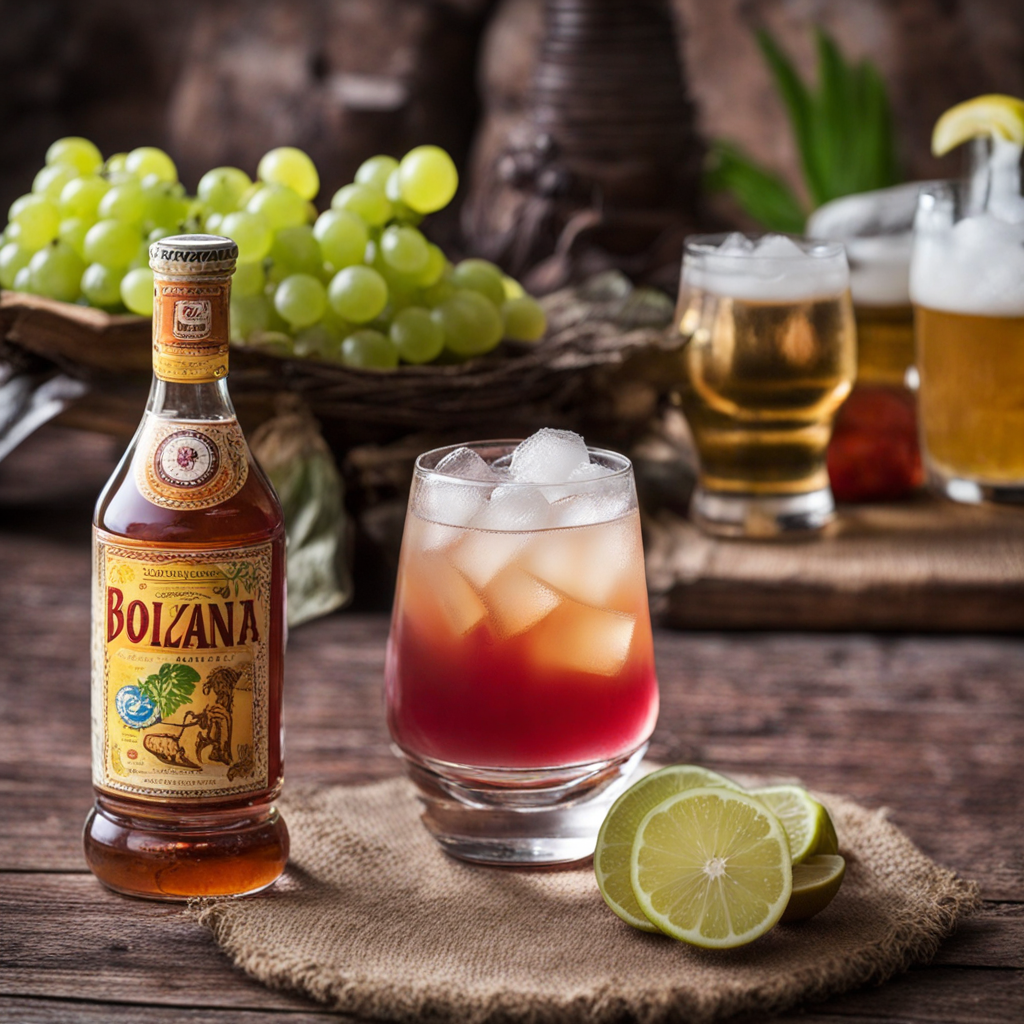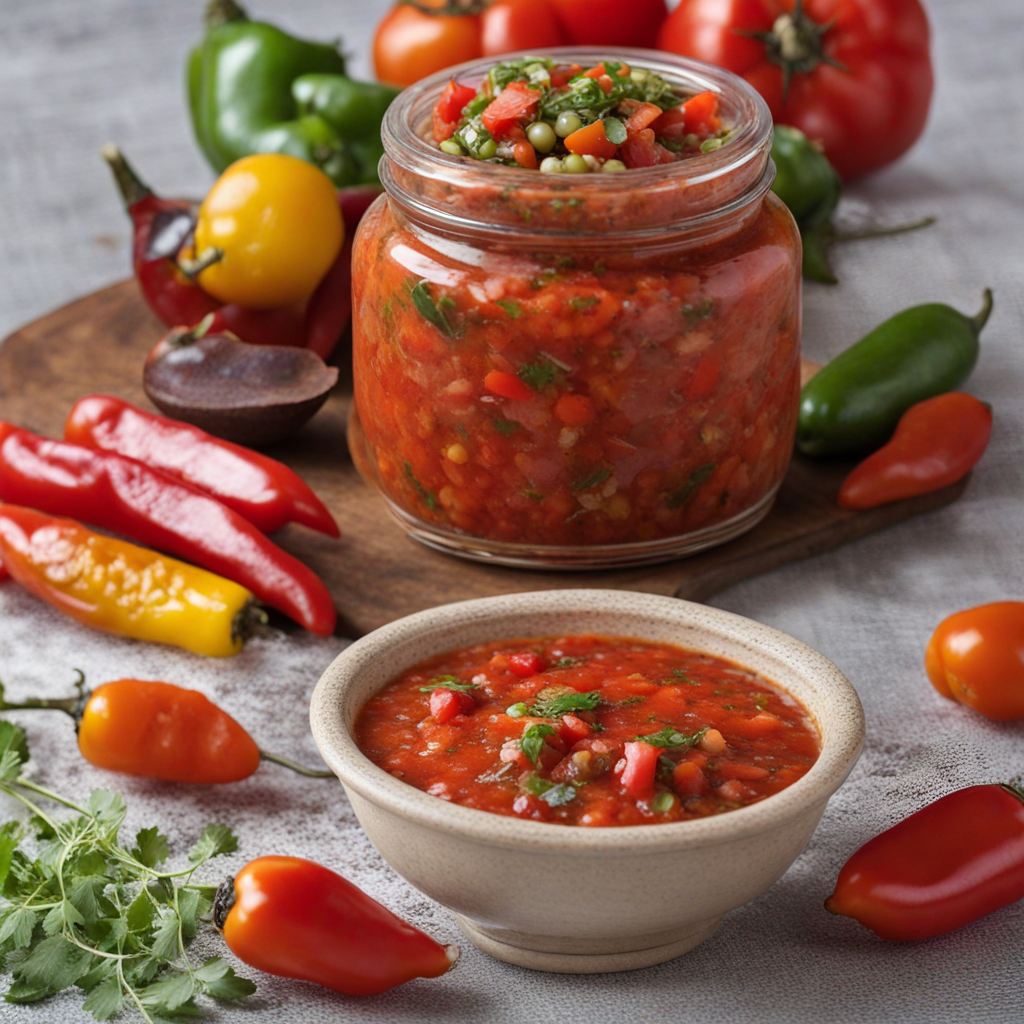Lechón
Lechón is a traditional Bolivian dish that features succulent roasted pig, characterized by its crispy skin and tender, flavorful meat. The preparation involves marinating the whole pig with a blend of spices, herbs, and sometimes citrus juices, infusing the meat with a rich depth of flavor. Once marinated, the pig is slow-roasted over an open flame or in a wood-fired oven, allowing the fat to render beautifully and the skin to achieve that glorious, crackling texture that is a hallmark of this mouthwatering dish. The experience of enjoying Lechón transcends the taste; it is often a communal affair, served during festive occasions and family gatherings. Accompanying the pig, you will typically find a variety of side dishes, such as spicy salsas, roasted potatoes, and a refreshing salad, which complement the rich and savory flavors of the meat. The contrast between the crispy exterior and the juicy interior creates a satisfying bite that leaves a lasting impression on your palate. In Bolivia, Lechón is more than just a meal; it represents a celebration of culture and tradition. The dish is often prepared with care, embodying the values of sharing and togetherness that are central to Bolivian hospitality. Whether you are enjoying it at a local fiesta or in the warmth of a family home, Lechón invites you to savor not only its delicious taste but also the stories and love that go into its preparation.
How It Became This Dish
Lechón: A Culinary Treasure of Bolivia Origin and Historical Context Lechón, a dish that celebrates the succulent flavors of roasted young pig, holds a cherished place in Bolivian cuisine. Its roots stretch deep into the cultural tapestry of Bolivia, a country known for its diverse ethnic groups, each contributing unique culinary traditions. While lechón itself can be found across many Latin American countries, Bolivia's version reflects a distinct blend of indigenous and colonial influences. The origins of lechón can be traced back to pre-Columbian times when indigenous communities practiced a form of communal cooking. While pigs were not native to the Americas and were introduced by Spanish colonizers in the 16th century, the indigenous peoples quickly embraced the animal for its rich flavor and adaptability. The preparation of the pig, especially when roasted, became a social and cultural event, often associated with significant celebrations such as harvests, weddings, and religious festivities. Cultural Significance In Bolivia, lechón is more than just a dish; it is a symbol of communal gathering and celebration. Traditionally, lechón is prepared for special occasions, including Christmas, weddings, and local festivals. The preparation of the dish often involves the whole community, from the butchering of the pig to the final roasting process, fostering a sense of unity and shared identity. The dish holds particular significance in the Aymara and Quechua communities, where it is often served alongside traditional staples such as llajwa (a spicy salsa), potatoes, and corn. These accompaniments highlight the importance of local ingredients and the connection between the land and the people. The preparation of lechón often involves traditional cooking methods, including the use of open flames or underground pits, which not only impart a unique flavor but also echo ancient culinary practices that have been passed down through generations. Development Over Time As Bolivia's culinary landscape has evolved, so too has the preparation and presentation of lechón. In the early 20th century, with urbanization and the influx of European immigrants, new cooking techniques and flavors began to influence traditional recipes. The advent of firewood and charcoal ovens allowed for a more controlled roasting process, enhancing the dish's flavor profile while still maintaining its rustic roots. Regional variations of lechón have emerged, each reflecting the local ingredients and cultural practices. For instance, in the highlands, the dish is often seasoned with herbs and spices that are native to the region, while in lowland areas, tropical flavors like citrus and achiote might be incorporated. These adaptations not only serve to personalize the dish but also demonstrate the culinary diversity that exists within Bolivia. In contemporary times, lechón continues to be a staple at celebrations, but it has also found its place in the everyday culinary scene. Street vendors and restaurants across Bolivia serve lechón, catering to both locals and tourists. The dish has become emblematic of Bolivian gastronomy, celebrated for its rich flavors and cultural significance. Modern Interpretations Today, lechón is often presented with a modern twist, appealing to the palates of younger generations and international visitors. Chefs experiment with different marinades and cooking techniques while still honoring the traditional ways of preparation. Some restaurants offer lechón tacos or sliders, allowing for a fusion of flavors that reflect contemporary dining trends. Moreover, the rise of food tourism in Bolivia has led to a renewed interest in traditional dishes like lechón. Culinary tours highlight the importance of local ingredients and the stories behind each dish, and lechón is frequently featured as a must-try item. This exposure not only promotes Bolivian cuisine but also fosters a sense of pride among locals about their culinary heritage. Conclusion Lechón is more than just a delicious dish; it embodies the spirit of Bolivia, weaving together history, culture, and community. Its evolution over time reflects broader changes in society while remaining deeply rooted in tradition. As Bolivia continues to explore its culinary identity, lechón stands out as a testament to the country's rich gastronomic heritage, celebrating the flavors of the land and the connections between its people. In essence, lechón is a dish that tells a story — a narrative of cultural fusion, social gatherings, and the enduring bonds of community. Whether enjoyed at a festive gathering or a casual meal, lechón serves as a reminder of the importance of tradition and the joy of sharing food with others, making it a true treasure of Bolivian cuisine.
You may like
Discover local flavors from Bolivia


